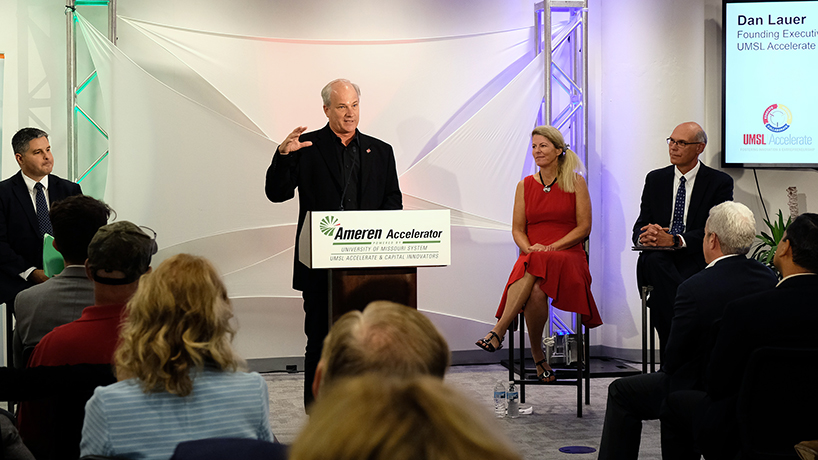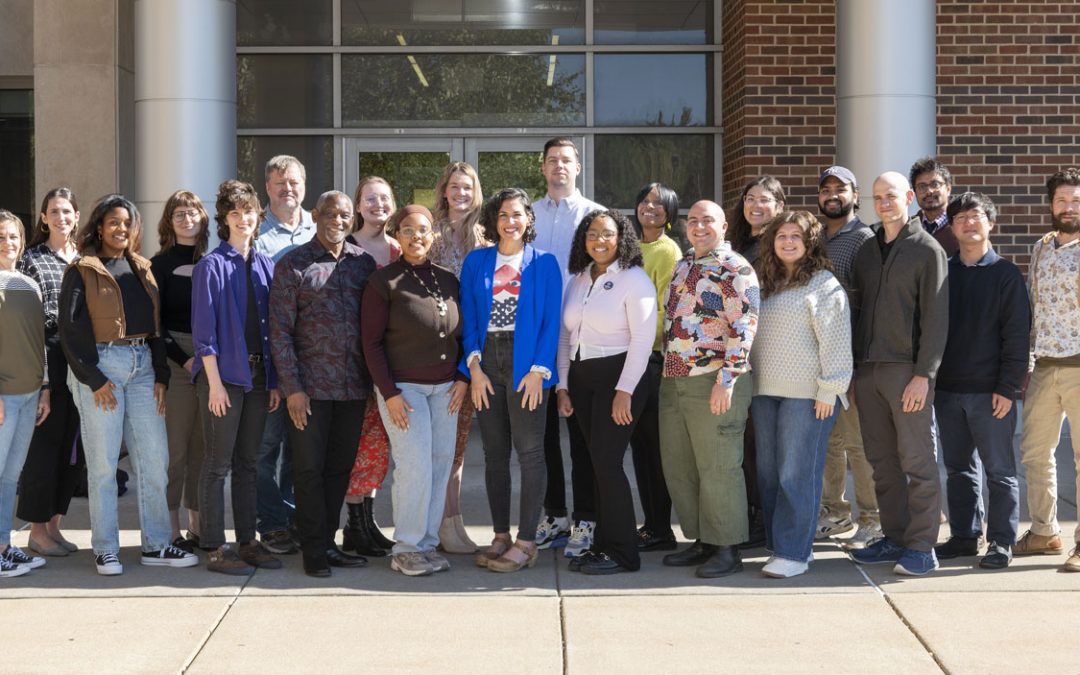
UMSL Accelerate Executive Director Dan Lauer – pictured here at a 2017 event – addressed ways the University of Missouri–St. Louis can support entrepreneurs as they face hardships due to the economic effects of the coronavirus pandemic in a COVID-19 Research Conversation on Friday. (Photograph by August Jennewein)
Throughout the COVID-19 pandemic, University of Missouri–St. Louis faculty, staff and students have supported the St. Louis community in a wide variety of ways. This week’s efforts include promoting entrepreneurship and making sense of COVID-19 data.
ORA research webinar looks at ways to support entrepreneurship and small businesses
Shutdowns and restrictions have hit the economy hard and have especially impacted nonprofits and small businesses.
Dan Lauer, founding executive director of UMSL Accelerate, presented “How COVID-19 Is Affecting Entrepreneurs and Small Business Owners in the St. Louis Region” at a Zoom webinar hosted by the Office of Research Administration on Friday.
Lauer pointed out that UMSL is in a unique position to lead the community in entrepreneurial efforts.
“The university plays a convening role,” he said. “We’re the facilitator. We’re here to teach and educate. There’s an opportunity for UMSL to lead. We’ve got a lot of respect and momentum in the entrepreneurial system. We’ve got a lot of student engagement. We want to lead, and we want to help.”
UMSL Accelerate inspires entrepreneurs by providing students with coursework, internship and mentorship opportunities and community collaboration. Lauer predicted the initiative’s role will become especially crucial as the economy recovers.
“UMSL Accelerate is here to foster innovation and entrepreneurship for students, for faculty and for community,” he said. “The ecosystem is really messy. It looks like a spider web. One of the conversations we’re having with our ecosystem partners is ‘Who’s going to lead this?’ What you want is an ecosystem that looks like a funnel, where you’re drawing in a lot of new ideas. We can be the starters and cheerleaders and champions.”
In the coming months, UMSL Accelerate will explore ways to support tech startups and other entrepreneurs.
The webinar was part of the UMSL COVID-19 Research Conversations series – weekly webinars that connect faculty members across disciplines to discuss opportunities to support the St. Louis community during the pandemic.
Fredrik Inglis and jeff smith examine testing data
The skills Assistant Professor of Biology Fredrik Inglis uses every day are applicable not only in a laboratory setting. With the outbreak of COVID-19, he’s used his expertise to make sense of data regarding positive cases in the St. Louis region.
Inglis’ expertise in microbiology provides an ideal fit for studying the virus through data analysis. When he and jeff smith, an independent researcher and data scientist, had to put their research projects on hold due to COVID-19 precautions, they took the opportunity to study the most-talked-about disease in the world.
“Hopefully come at it from a different angle, and we will have something interesting to say … (to) open lots of new doors and avenues of curiosity,” Inglis said.
Their COVID-19 research explores where positive cases are located and what socioeconomic factors may be influencing the coronavirus’ impact. They plan to share their work on a website and submit their findings to a peer-reviewed journal.














